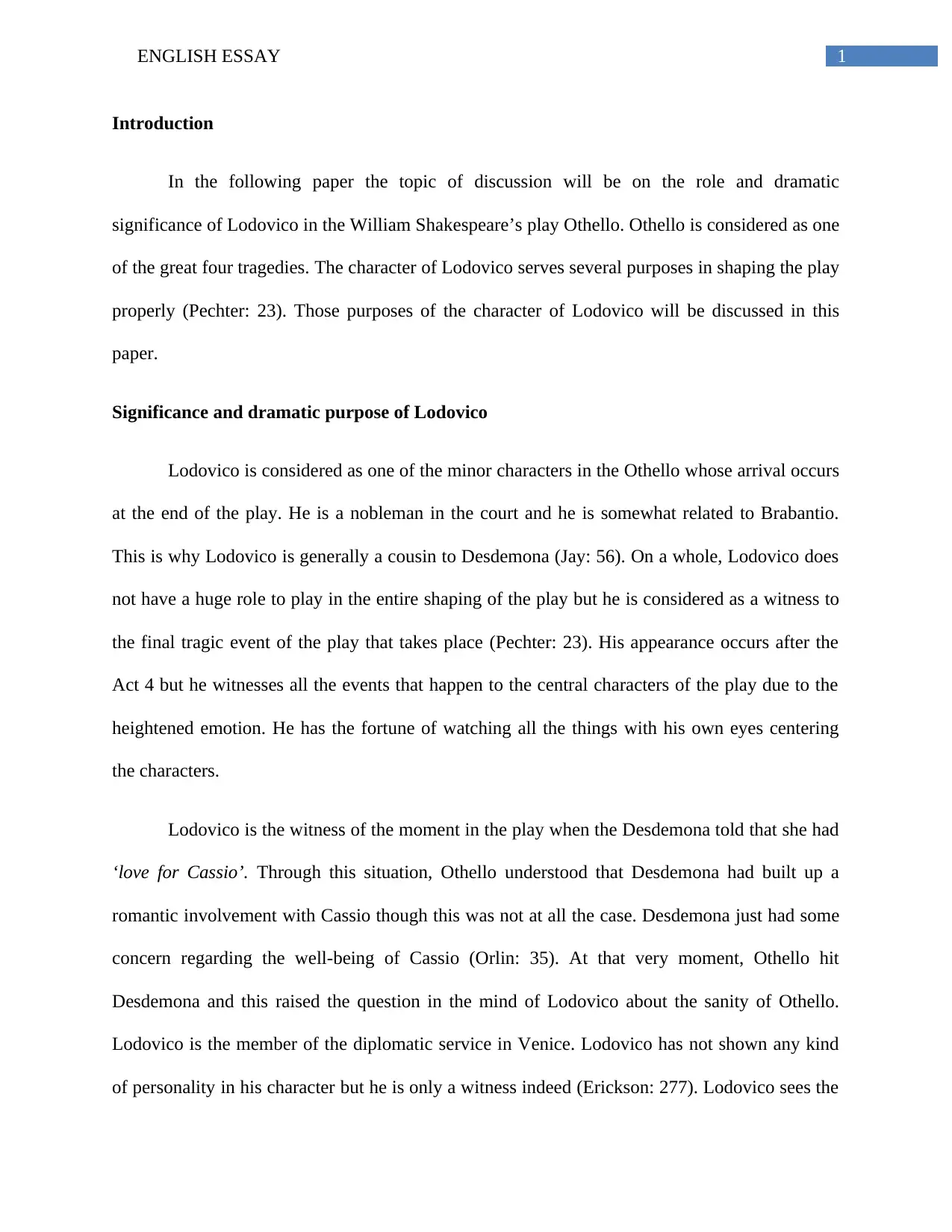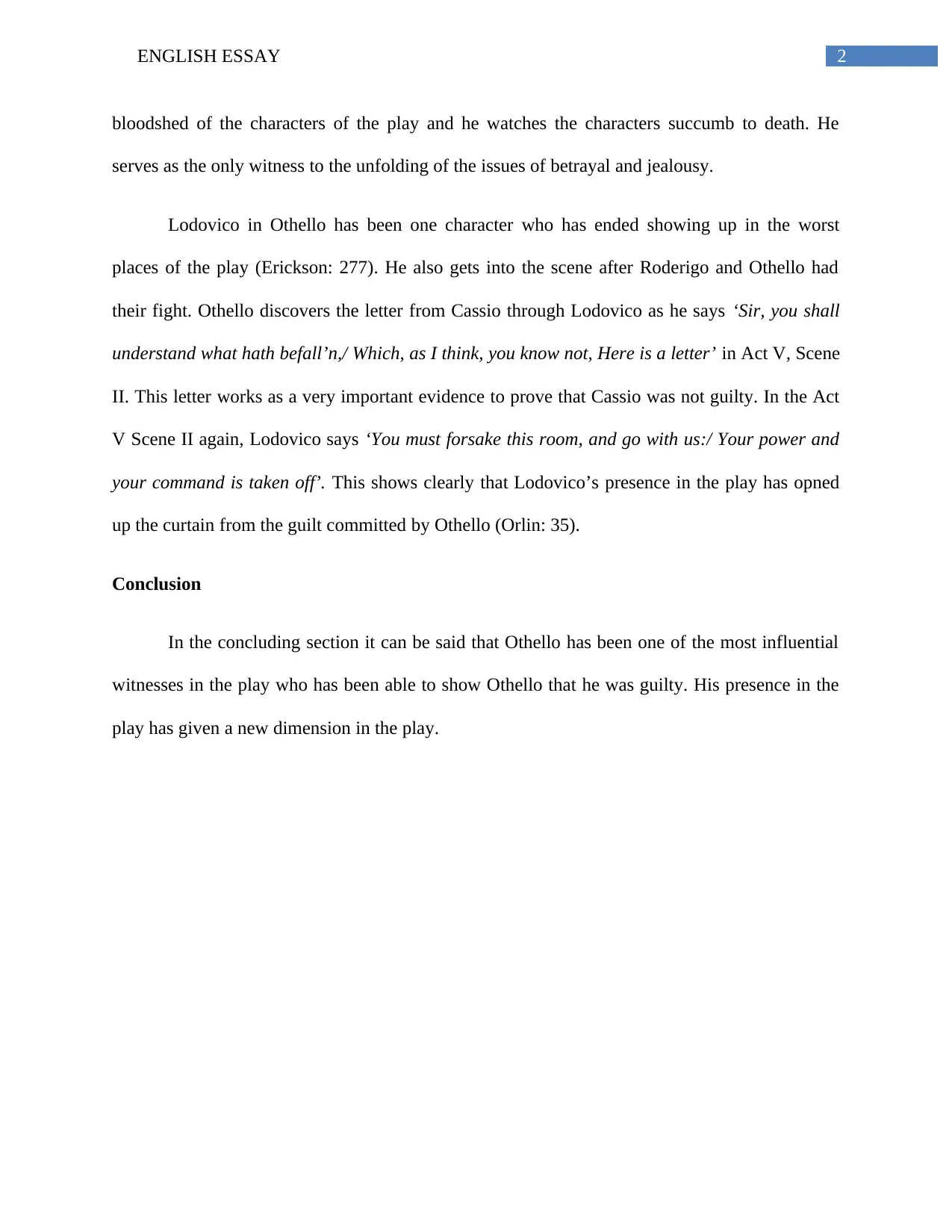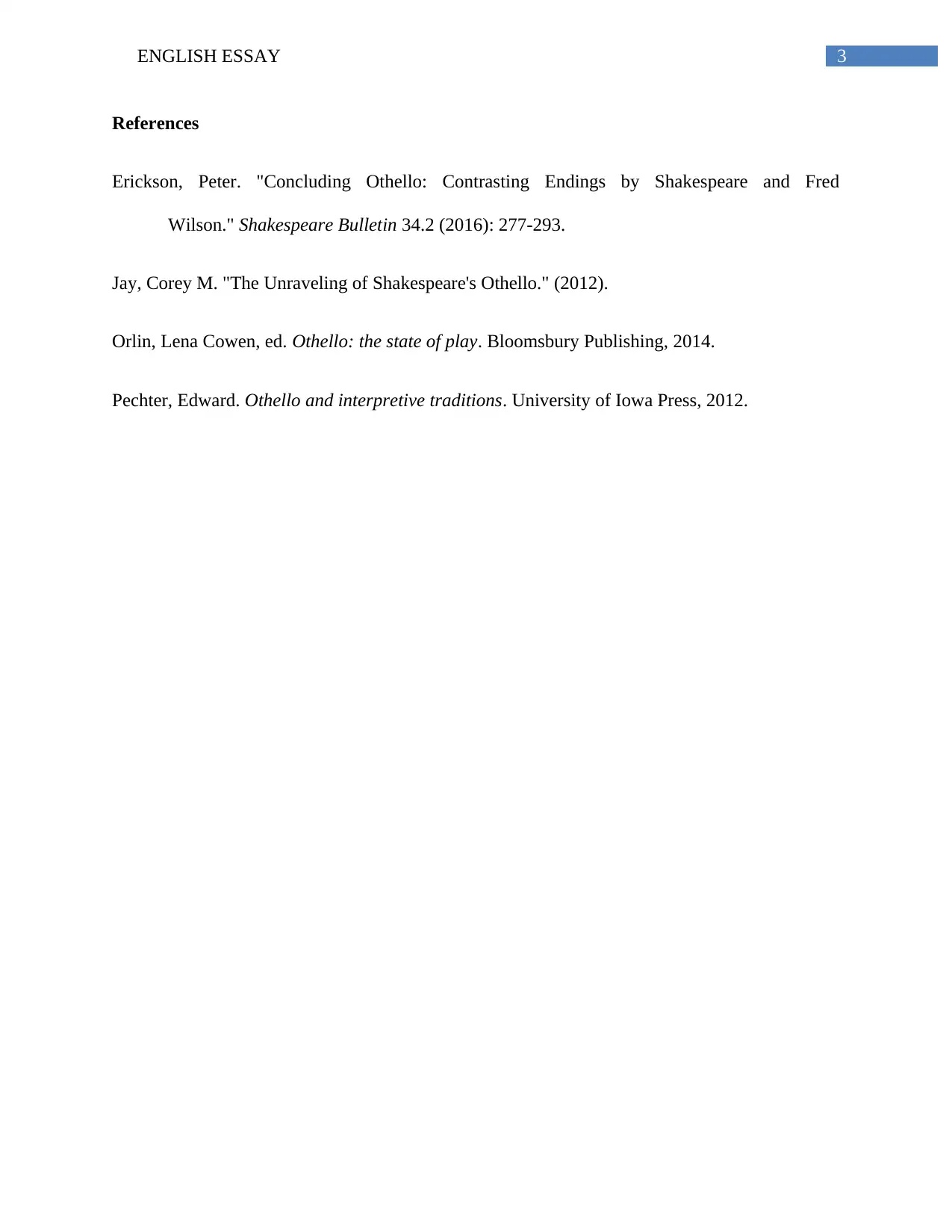Exploring Lodovico's Dramatic Role in William Shakespeare's Othello
VerifiedAdded on 2023/04/20
|4
|693
|184
Essay
AI Summary
This essay explores the role and dramatic significance of Lodovico in William Shakespeare's Othello. Lodovico, though a minor character, serves as a nobleman and cousin to Desdemona, witnessing key tragic events. He observes Desdemona's interaction with Cassio, Othello's violent reaction, and ultimately uncovers the truth through Cassio's letter. Lodovico's presence reveals Othello's guilt and provides a crucial perspective on the unfolding betrayal and jealousy. As a diplomatic figure, he represents Venetian society's judgment on Othello's actions, adding a significant dimension to the play's resolution. Desklib offers similar solved assignments for students.
1 out of 4








![[object Object]](/_next/static/media/star-bottom.7253800d.svg)